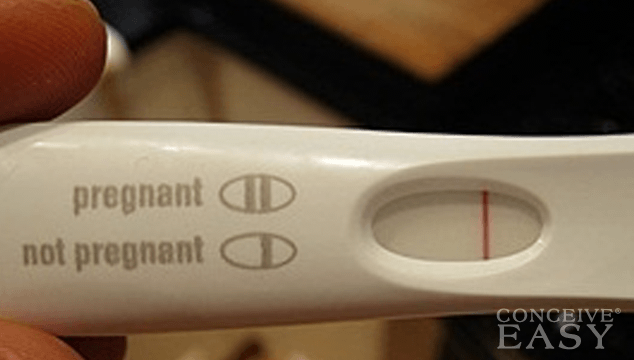A false pregnancy test is an hCG urine pregnancy tests that says that you are not pregnant when, in fact, you are pregnant. hCG is the hormone that is produced in the body by the placenta. It is the “pregnancy hormone,” and it only shows up in the body when you are pregnant. Claim Your 20 Free Pregnancy Tests – Click Here
This hormone is what at home urine pregnancy tests use to tell whether or not you are pregnant. However, it is actually pretty common to receive a false negative result on a home pregnancy test. Home pregnancy tests are usually 95%-97% percent accurate, but sometimes a false negative will occur. Here are a few of the reasons why.

This is the most common reason that some women receive a false negative pregnancy test. We know how excited you are to test. After all, you’ve been trying to conceive a baby girl or baby boy for months now! At home pregnancy tests detect whether or not hCG is present in your body.
Some tests are more sensitive than others, and can detect a smaller amount of hCG. It is possible that by testing too early, your body has not built up a level of hCG that is high enough to be detected by an at home test. If you are testing before your period is due, you might want to wait a few days, and try again.

Using the test improperly can also cause a false negative test in some cases. If the test instructions are not followed properly, the results can not be trusted. Some tests require you to pee on the test directly; while others might have you pee in a cup and dip the test in the cup. Some tests have you pee in a cup and then use the eyedropper to drop the urine onto the test.
Following the instructions specific to the test you are using is very important. Also, leaving the test sitting out for too long following the test can lead to false negative results. It is very important to check the test results within the allotted time frame that the instructions will tell you, or else the test in considered invalid.

While testing too soon and improper testing account for almost all false negative at home pregnancy tests, there is a possibility that a false negative test can indicate a problem with a pregnancy. If you receive a positive test, and then a few days later receive a negative test, it can indicate a problem such as ectopic pregnancy, chemical pregnancy, or miscarriage. If you receive different or varying test results, it is always imperative that you see a doctor and find out what is going on.










Comments